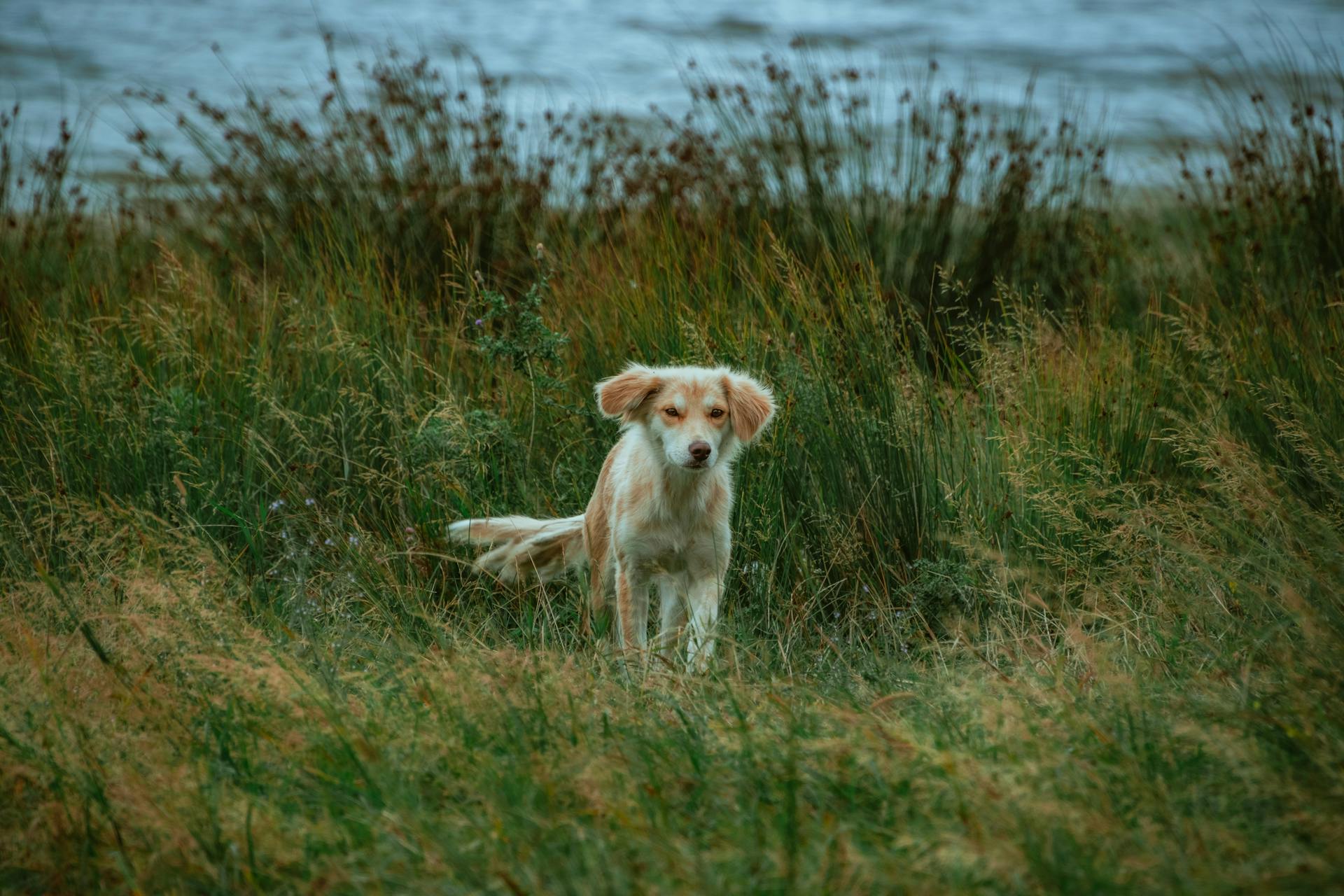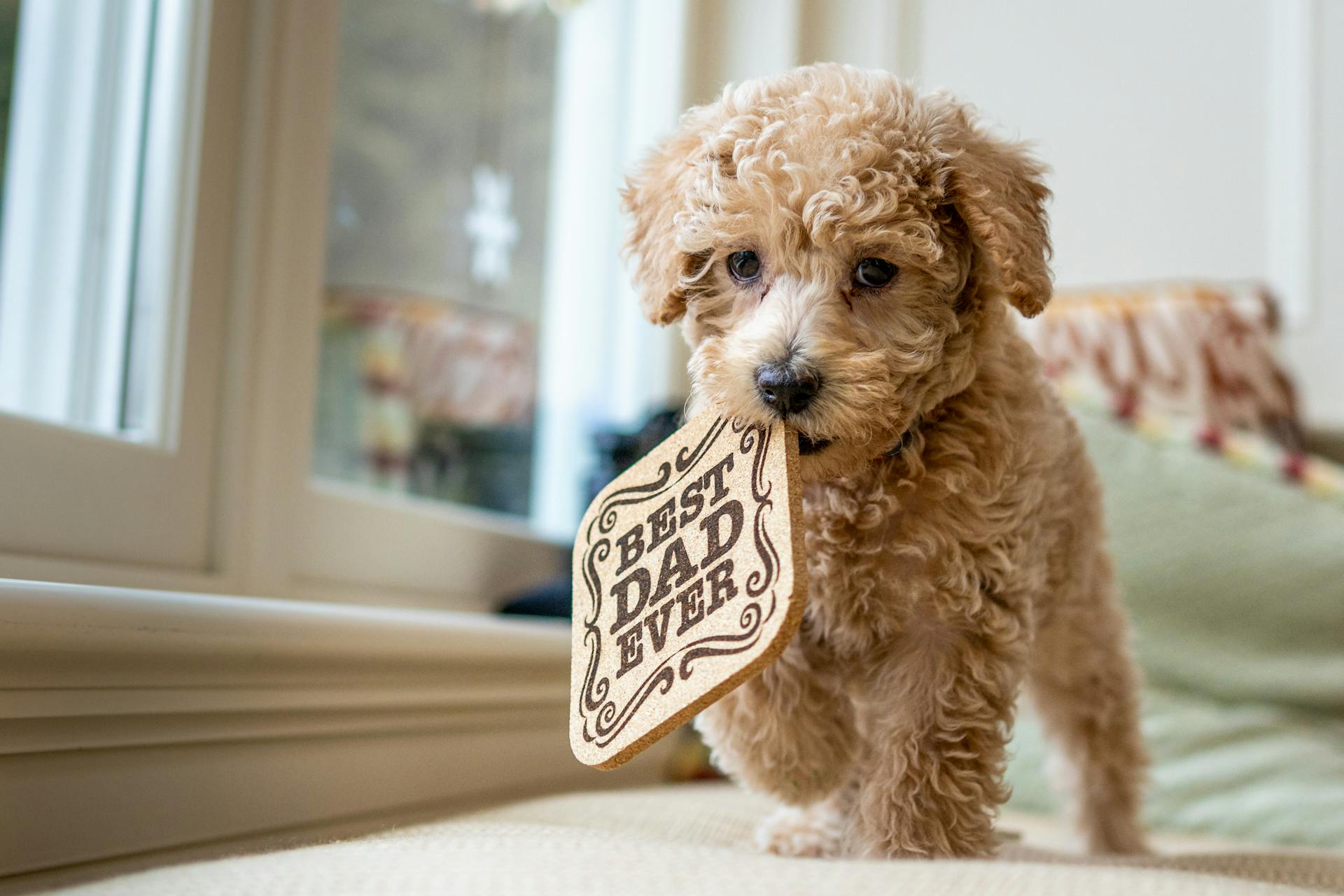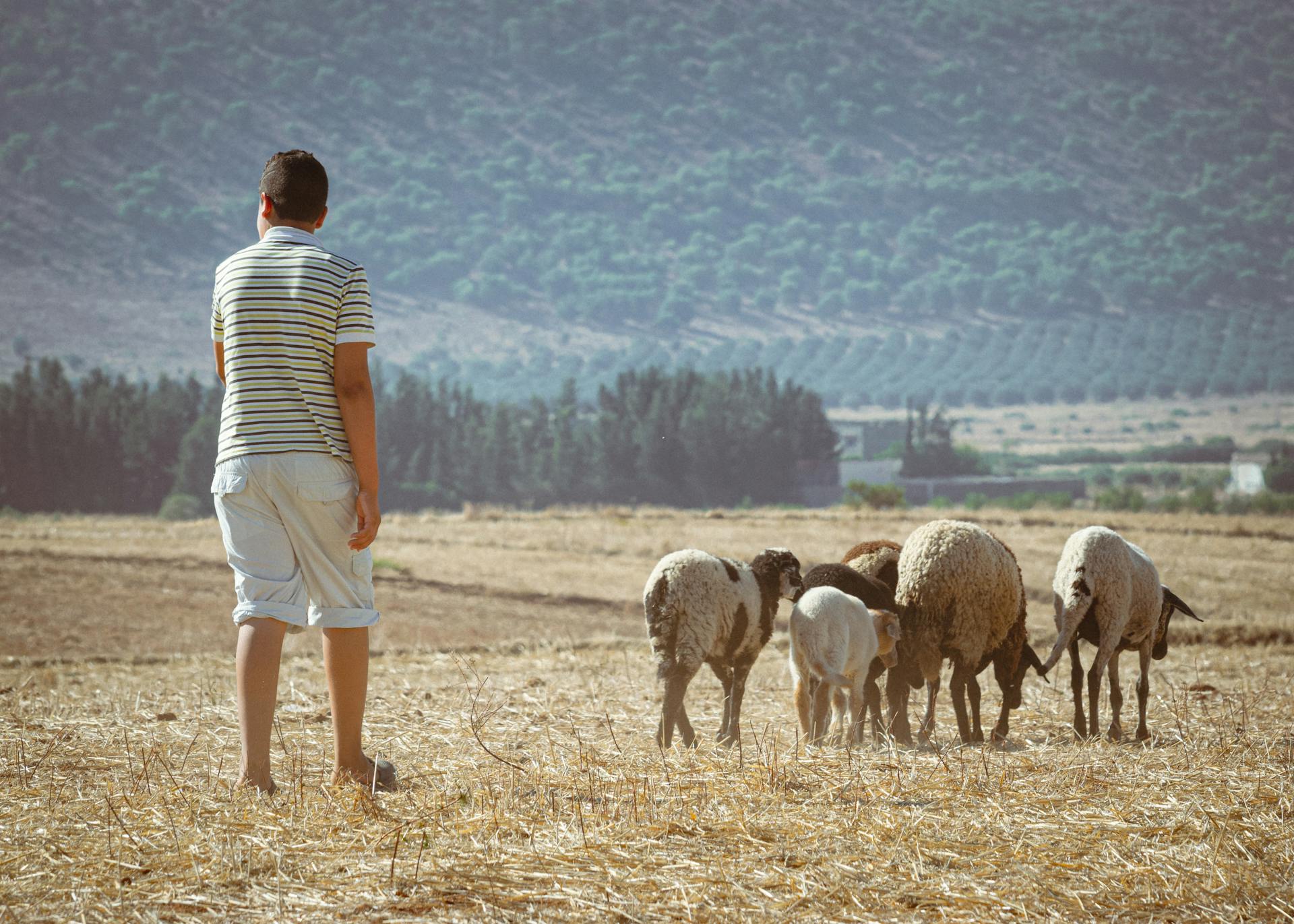
The Dutch Shepherd is a highly energetic breed that requires regular exercise to stay happy and healthy. They need at least 1-2 hours of physical activity per day.
Their intelligence and trainability make them a popular choice for active families and working roles.
To ensure your Dutch Shepherd gets the right amount of exercise, consider enrolling them in obedience training or agility classes. This will not only burn off energy but also strengthen your bond with your dog.
A well-balanced diet is also crucial for your Dutch Shepherd's overall health. Aim for high-quality dog food that meets their nutritional needs, and consider adding supplements if recommended by your veterinarian.
History and Origins
The Dutch Shepherd breed has a rich and fascinating history. Originally developed in the Netherlands in the early 1800s, they were bred by farmers and shepherds to perform a variety of farm tasks.
Dutch Shepherds were used for herding cattle and sheep, pulling small carts, keeping chickens out of gardens, and acting as watchdogs. They had impressive strength and intelligence that allowed them to do more than the average dog.
By the early 1900s, industrialization and modern farming methods quickly replaced the Dutch Shepherd. This led to a decline in the breed's popularity and a significant reduction in breeding.
The Dutch Shepherd has a wild past, originating naturally from local dogs bred from wild dog populations as herders for local sheep herds. You can still see this wild ancestry in the Dutch Shepherd's appearance.
In 1910, a dog fancier wrote that the Dutch Shepherd "bears a great resemblance to the wolf." This is because the Dutch Shepherd is a relatively new breed that maintains roots that connect it to the old wild dogs of Medieval Europe.
The breed was officially recognized in 1914, with the official breed standard determining that Dutch Shepherds could only be brindle-colored. Since then, the three breeds - Dutch, German, and Belgian Shepherds - have diverged, making it easier to tell the difference between them.
Industrialization and modern farming methods led to a significant decline in the Dutch Shepherd breed. During World War II, breeding in the Netherlands stopped, and many dogs died or were taken by the German military.
Temperament and Intelligence
Dutch Shepherds are very intelligent and alert dogs, bred to work and excel in various activities such as herding, agility, and search and rescue. They have a ton of energy and are used to participating in strenuous activities.
These dogs are highly trainable and eager to please, soaking up new commands like a sponge. They require a confident trainer who can set boundaries and build a trusting relationship.
Dutch Shepherds are loyal and steadfast, serving as vigilant watchdogs, but proper socialization is a must for this relatively reserved breed. They can be stubborn and obstinate due to their intelligence and hardy nature.
Their high intelligence level makes them easy to train and very obedient, combined with their athletic ability. Dutch Shepherds love to be active and make use of their high energy levels.
They are great with family, even children and other pets, and are very affectionate and obedient.
Were Extremely Versatile
Dutch Shepherds are incredibly versatile dogs, capable of handling a wide range of tasks with ease.
Originally bred to herd sheep, they also performed various jobs on Dutch farms, including herding and protecting chickens, pulling milk carts, and alerting rural homes to the presence of animals or people.
These dogs are highly trainable and eager to please, soaking up new commands quickly.
They are excellent watchdogs and usually bark when a stranger enters their territory, which can be beneficial, but also requires training to interact with guests appropriately.
Dutch Shepherds require plenty of exercise, both mentally and physically, to keep from becoming bored and destructive.
They are great with family, even children and other pets, and are very affectionate and obedient.
Temperament & Intelligence
Dutch Shepherds are very intelligent dogs, known for their alert nature and ability to soak up new commands like a sponge.
Their high intelligence level makes them easy to train, and they thrive on mental stimulation. They are highly trainable and eager to please, which is a testament to their intelligence.
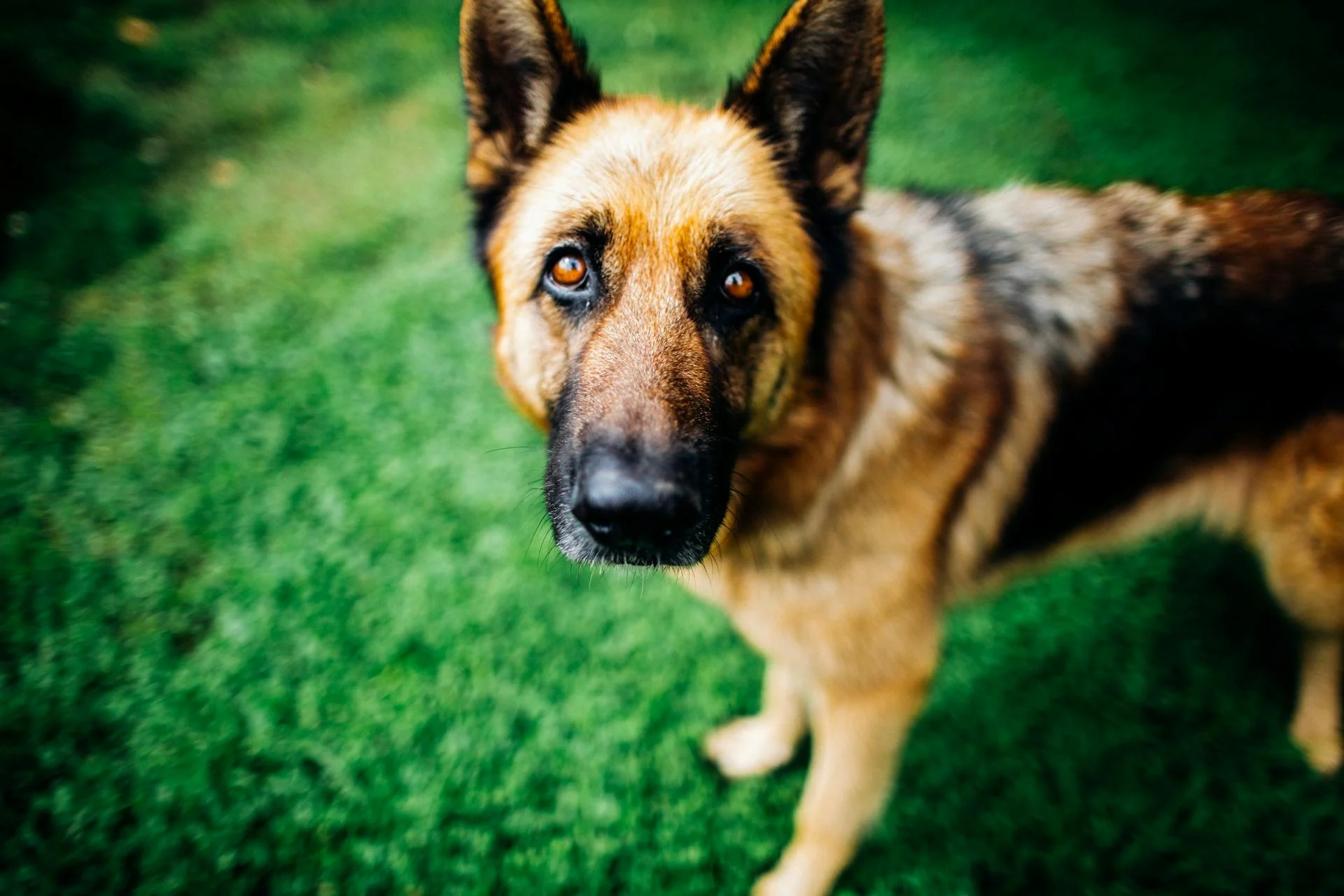
Dutch Shepherds have a ton of energy and are used to participating in strenuous activities, making them perfect for active families. They are also vigilant and will bark whenever they see new people or anything out of place.
Their independent nature can sometimes make them stubborn, but with proper socialization and training, they can become devoted and obedient companions. Dutch Shepherds are loyal and steadfast, serving as vigilant watchdogs.
Early socialization training is crucial to help them stay calm around new people and pets. This breed requires a confident trainer who can set boundaries and build a trusting relationship.
Dutch Shepherds are great with family, even children and other pets, and they are very affectionate and obedient. However, they will need plenty of exercise, both mentally and physically, to keep from becoming bored and destructive.
For another approach, see: Bernese Mountain Dog Breeders New York
Exercise and Training
Dutch Shepherds need a large amount of exercise to keep them healthy and fit, requiring long walks twice per day and structured activities like hiking, agility, and running.
Their high energy level can be managed with consistent training and mental stimulation through games, puzzles, or training.
If you don't give your Dutch Shepherd enough stimulation, they can become anxious, destructive, and hyperactive.
Dutch Shepherds are highly intelligent and trainable, making them a great breed for active owners who can provide the necessary exercise and training.
Training should start early, ideally from eight weeks old, and be kept short to accommodate their short attention span.
Positive reinforcement is the best way to train a Dutch Shepherd, using treats and praise to encourage good behavior.
Early socialization is crucial for every dog's growth and maturation, helping them stay calm in new situations.
On a similar theme: Short Haired Dutch Shepherd Puppy
Exercise
Dutch Shepherds are working dogs with a ton of energy, requiring long walks twice per day to keep them healthy and fit.
These dogs thrive on physical activity, so you'll want to consider doing structured activities with your Dutch Shepherd throughout the week, such as hiking, agility, running, or backyard games.
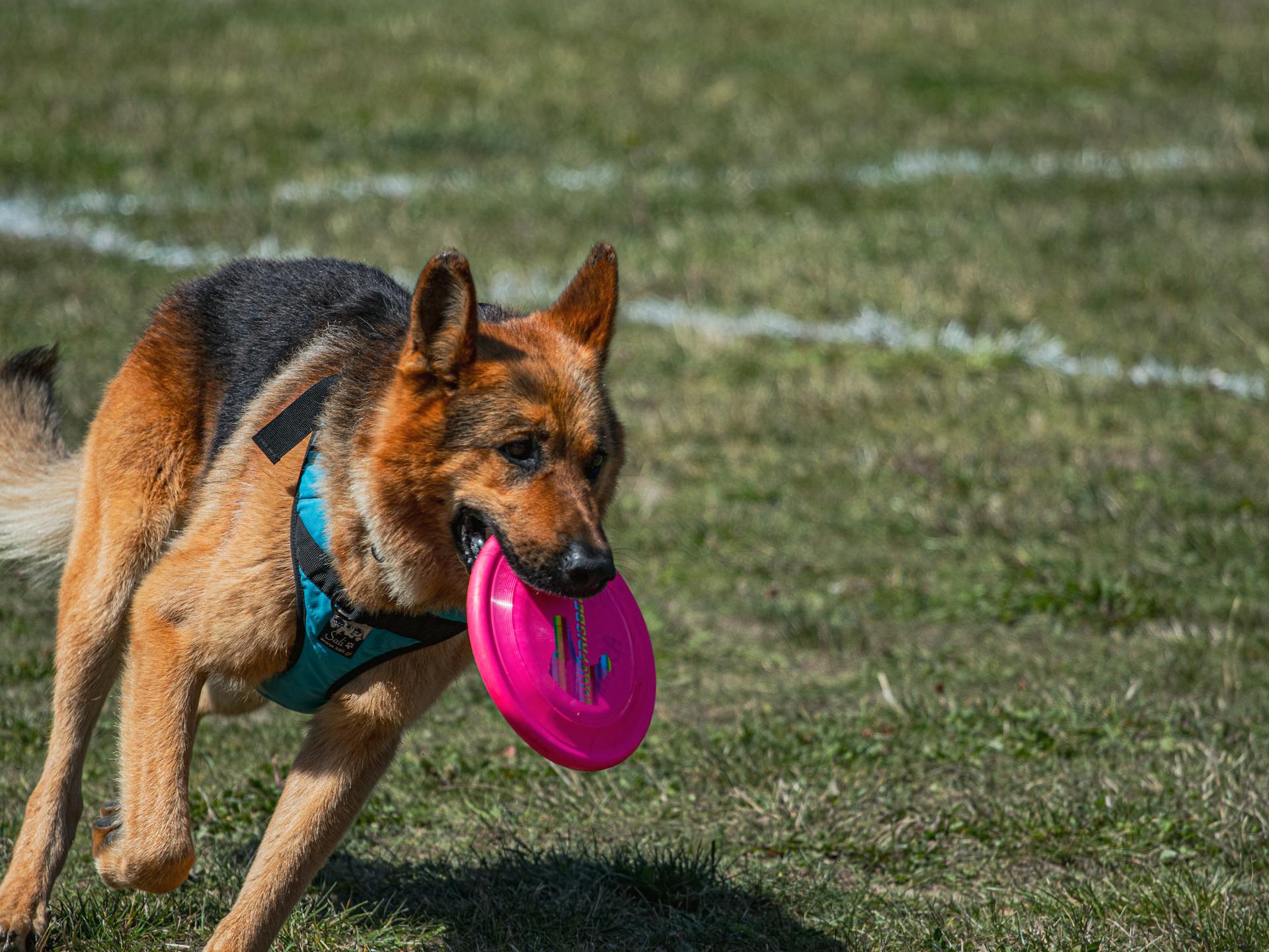
They need mental stimulation too, which can be provided through games, puzzles, or training, to prevent anxiety, destructiveness, and hyperactivity.
If you're not going on hikes every day, it's still essential to give your Dutch Shepherd multiple walks and playtime sessions each day for sufficient exercise.
Long excursions where they can enjoy the outdoors and explore are also a great idea, allowing them to burn off energy and have fun.
Dutch Shepherds are natural athletes, excelling in dog sports like agility events, nose work competitions, and protection sports, so don't be surprised if you see them participating in these activities.
Training
Training is a crucial part of a Dutch Shepherd's life. They are highly intelligent and used to having a job, making them highly trainable.
With enough effort and persistence, you can see your vision for your Dutch Shepherd to completion. Training is best started early when the dog is young, and socialization is also recommended, especially because they can be vigilant and hyper when they are young.
Discover more: Dutch Shepherd Training
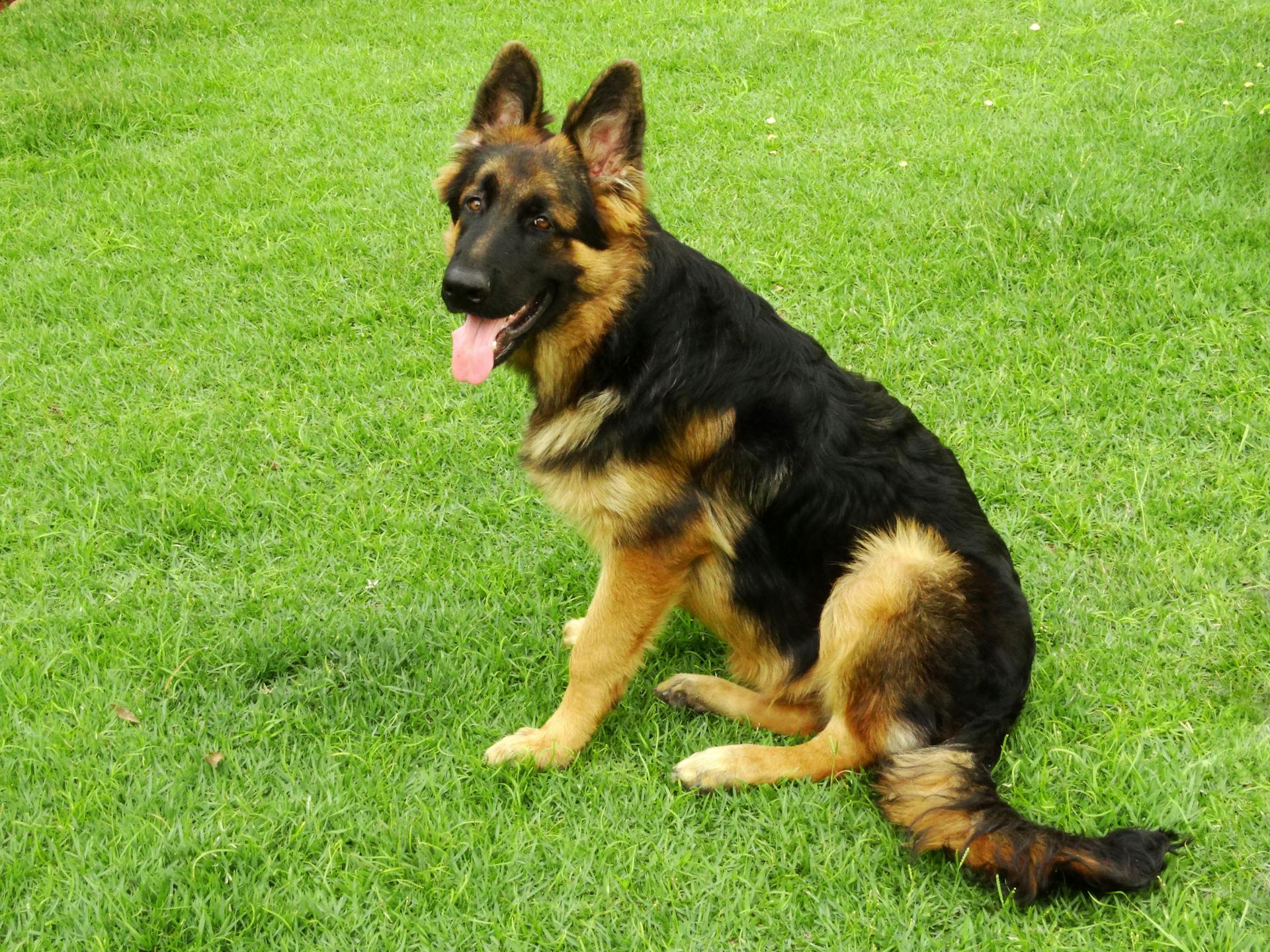
Consistent training with a goal is best for Dutch Shepherds, but some can be stubborn or obstinate due to their intelligence. You must have a stronger willpower than your dog to ensure they remain on your prescribed training path.
Dutch Shepherds are extremely smart and can learn new commands quickly, making training relatively easy. They are dedicated, focused, and learn how to follow commands quickly.
You can start training them early on, as soon as eight weeks old, but keep training sessions short since puppies generally have shorter attention spans. The best way to train a dog is by using positive reinforcement, such as treats and praise.
Here's a quick rundown of the essential training tips for Dutch Shepherds:
- Start training early, ideally from 8 weeks old
- Keep training sessions short
- Use positive reinforcement, such as treats and praise
- Be consistent and patient, as they can be stubborn or obstinate
Return
If you're bringing home a Dutch Shepherd puppy, you'll need to commit to regular exercise and training from an early age. They're high energy and will require ample amounts of socialization, training, and activity to keep them focused.
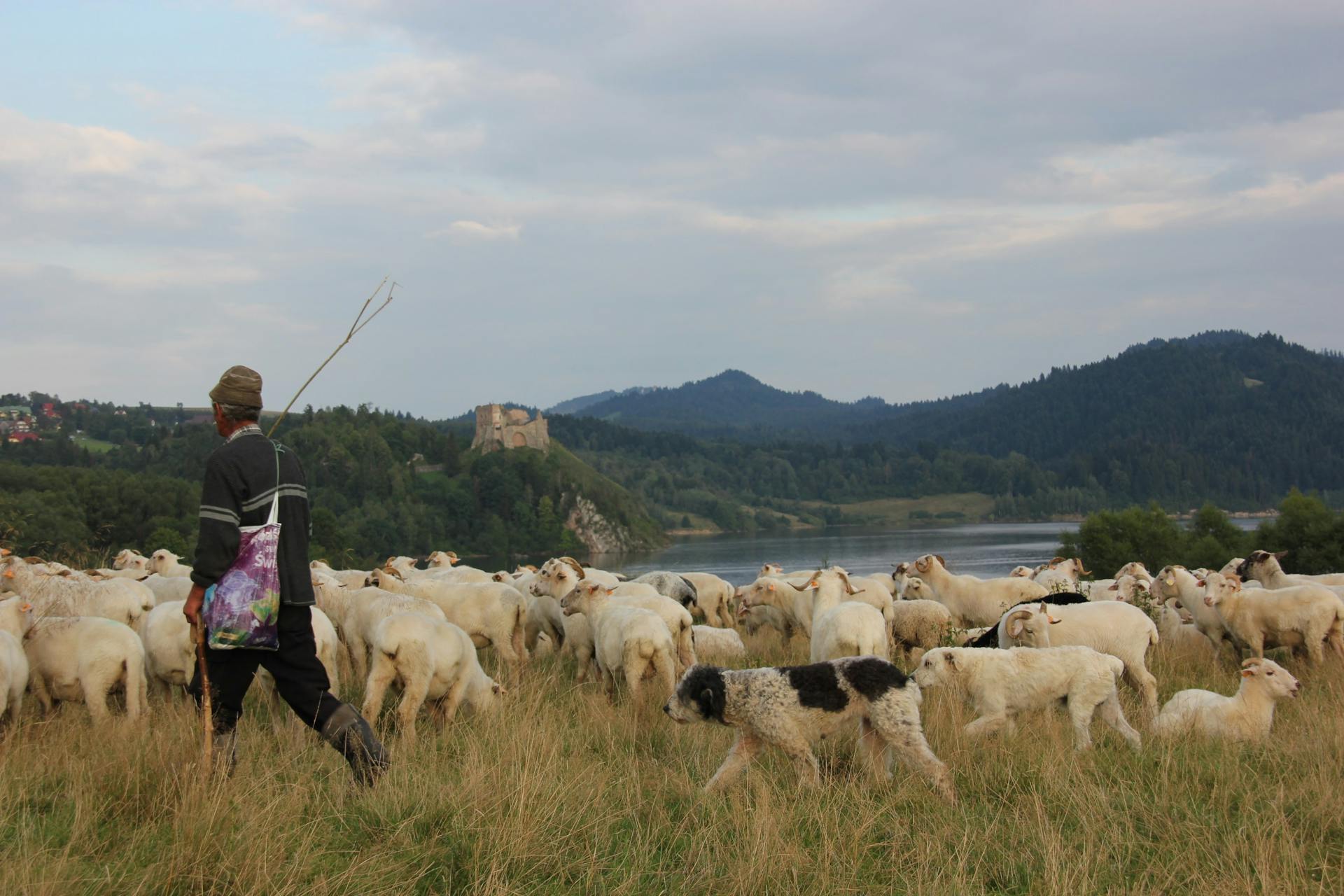
Dutch Shepherds need at least one good, long walk per day, and maybe some vigorous play sessions to keep them mentally and physically stimulated. If they're not getting enough exercise, they may become bored, anxious, and destructive.
Their herding backgrounds give them plenty of energy to burn, and they excel in dog sports like agility events, nose work competitions, and protection sports. They respond incredibly well to training, making them a great pet for active families or owners.
Dutch Shepherds are not very common in the US, and many of the best breeders remain in Europe, so you may need to go out of your way to find a trustworthy breeder.
Health and Grooming
Dutch Shepherds are generally a very healthy breed, but like any breed, they can be prone to certain health issues, such as hip dysplasia, which is relatively rare in Dutch Shepherds compared to other breeds.
Regular grooming is essential to keep your Dutch Shepherd's coat healthy and prevent matting and tangling. Short-coated Dutch Shepherds require minimal grooming, while long-coated and rough-coated varieties need regular brushing, bathing, and trimming.
Dutch Shepherds shed excessively twice a year, during fall and spring, and require daily brushing during these periods to prevent loose fur from spreading around the house. Brushing your dog regularly can also help remove dirt and debris, and check for fleas.
Health
Dutch Shepherds are generally a very healthy breed, with some instances of hip dysplasia being more rare than in similar breeds.
Their lifespan is relatively long, ranging from 11 to 14 years, which is a testament to their overall health.
Dutch Shepherds can develop hip dysplasia, which can lead to arthritis and joint problems as they age.
Elbow dysplasia is another joint-related issue that can affect Dutch Shepherds.
Long-haired Dutch Shepherds have a higher risk of developing thyroid issues due to the genetics connected to their long coats.
Dutch Shepherds can also develop a type of glaucoma, but this problem is not as serious in dogs as it can be in humans.
Here are some health concerns that can affect Dutch Shepherds:
- Glaucoma
- Hip dysplasia
- Elbow dysplasia
- Thyroid problems
It's essential to be aware of these potential health issues and work with a reputable breeder who can screen for dysplasia and thyroid issues.
Here's an interesting read: Dutch Shepherd Health Issues
Grooming
Dutch Shepherds have three distinct coat types: short coats, long coats, and rough coats, each requiring different levels of grooming.
Short coats require minimal maintenance and no attention from owners. Long coats need weekly grooming, including brushing, bathing, and occasional trimming. Rough coated Dutch Shepherds require monthly grooming to keep their coats healthy.
Active Dutch Shepherds need regular baths to stay clean and odor-free. Nail trimming is also essential, especially if they're not wearing them down during outdoor activities.
Short-hair Dutchies have stiff fur that's tight to the body, with a soft wooly undercoat for adapting to different weather conditions. Long-haired types have straight, coarse fur that hangs straight down, with extra thickness and feathering around the head, ears, feet, and legs.
Wire-hair Dutchies have a dense, curly coat that needs hand-grooming at least twice a year. Regular brushing is necessary for short and long-haired coats, especially during shedding seasons in autumn and spring.
Dutch Shepherds shed excessively twice a year, requiring daily brushing during these periods. A good shampoo can help mitigate shedding, and choosing a canine-safe CBD shampoo can nourish their skin and fur.
Regular grooming sessions can improve your dog's long-term health by detecting early signs of issues that may require a veterinarian's attention. Grooming is also a great opportunity to bond with your dog.
Related reading: Short Haired Dutch Shepherd
Nutrition and Feeding
Dutch Shepherds are medium to large-sized dogs, so plan to feed them a good amount. Prepare about 2-3 cups of high-quality dry dog food per day.
A Dutch Shepherd's diet should be formulated for an active, mid-to-large size dog with somewhat high energy levels. You should ask your veterinarian or professional nutritionist for advice on which foods and portions are best for your individual dog.
You should also discuss adding fish oil supplements to their diet, as this can help keep their coat shiny and their skin healthy. Following the feeding guidelines on the bag is the best way to make sure that you are feeding the correct amounts to prevent excess weight gain.
Dog supplements can also be a great way to ensure your Dutchie is getting all the necessary nutrients in their diet. For example, you can give them vitamin supplements to boost their immune health or probiotics to help with digestion.
For an extra boost of beneficial nutrients, consider giving your Dutchie vegan treats for dogs. However, if you are not exercising your Dutch Shepherd daily, you should be wary of using high calorie foods as they can lead to obesity if they are not getting the proper amount of exercise to offset the extra calories.
Size and Upkeep
The Dutch Shepherd is a versatile breed that thrives on mental and physical stimulation.
On average, Dutch Shepherds stand 21-24.5 inches at the shoulder, with males being slightly larger and wider than females.
Regular grooming is essential, with all coat types shedding seasonally and requiring weekly brushing.
A Dutch Shepherd's brindle coat comes in three types: short-hair, long-hair, or rough-hair, and they need regular teeth brushing, ear cleaning, and nail trimming.
They are an excellent fit for an active household with other dogs, but obedience training is recommended to prevent high strung behavior.
Size
Dutch Shepherds stand about 21-24.5 inches at the shoulder.
Males are slightly larger and wider than females, and the difference is easily noticeable.
Male Dutch Shepherds can grow up to 75 pounds.
Most males weigh in the 50-70 pound range.
Females are on the lower end of this range.
Some females are even smaller at around 45 pounds.
Upkeep
The Dutch Shepherd's grooming needs are relatively straightforward. They require weekly brushing to manage their brindle coat, which comes in three types: short-hair, long-hair, or rough-hair.
Regular care also includes brushing their teeth, cleaning their ears, and trimming their nails. An occasional bath is necessary to keep them clean.
Their high energy level means they need plenty of physical stimulation, making them a great fit for active households with other dogs.
Obedience training is a must for this intelligent breed, as without it, they may become high strung.
Owning Essentials
Small spaces require careful consideration of what to keep and what to let go of. A general rule of thumb is to keep only what you use regularly.
Clutter can quickly accumulate in a small space, making it essential to establish a maintenance routine. Regular tidying can help prevent clutter from building up.
In a small space, every item counts, and keeping only essentials can make a big difference. A good starting point is to get rid of anything you haven't used in a year.
Don't underestimate the impact of a well-placed storage solution. A storage ottoman or a compact shelving unit can provide ample storage while keeping your space feeling open.
Related reading: Small German Shepherds
Featured Images: pexels.com

